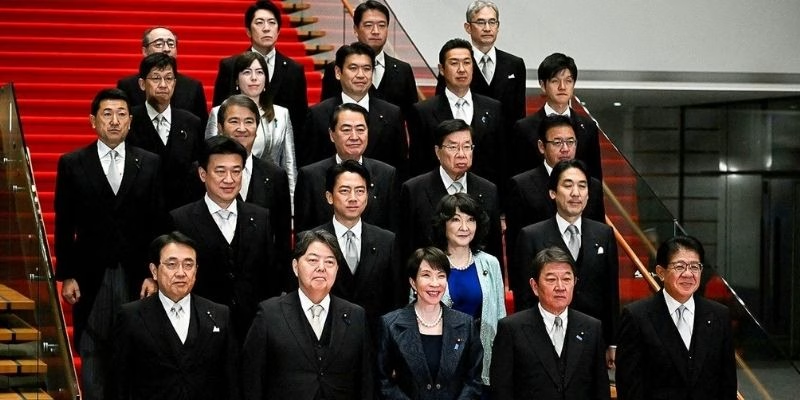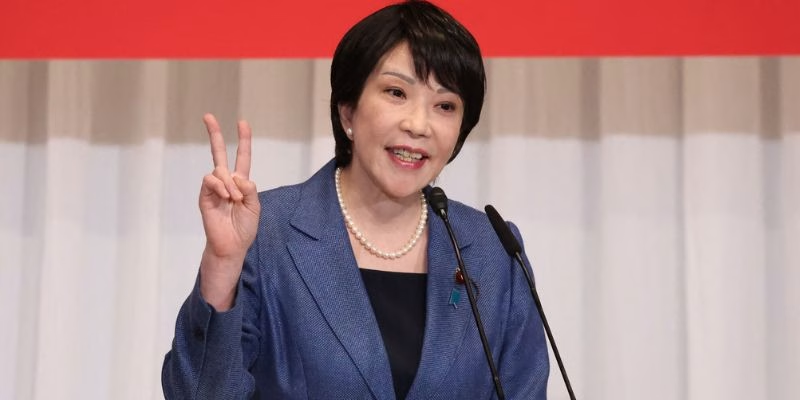The confirmation of Prime Minister Takaichi Sanae as Japan’s leader marks a significant inflection point. It signals a determined continuation of expansionary fiscal and monetary policies. Global citizens looking to rent an apartment in Japan must grasp the economic landscape of the Japan Real Estate Takaichi era. Understanding this is crucial for successful residency. Her administration’s “Sanaenomics” agenda creates distinct financial conditions. These conditions directly influence affordability, demand, and the availability of foreigner friendly apartments Tokyo.
The Macro-Economic Architecture: Opportunity Defined by Policy
Prime Minister Takaichi, a staunch advocate of fiscal stimulus, is committed to overcoming Japan’s decades-long battle with deflation. This strategic economic push generates immediate and measurable effects on the rental market, primarily through currency dynamics and wage inflation.
The Strategic Weakness of the Japanese Yen (JPY)
A core pillar of Sanaenomics is the continued insistence on ultra-low interest rates by the Bank of Japan. This policy stands in stark contrast to global tightening trends. It is the fundamental reason for the JPY’s sustained weakness against major world currencies. For expatriates, this policy divergence provides the most potent financial advantage in the history of Japan Real Estate Takaichi era’s modern rental market.
This currency discount directly enhances the purchasing power of foreign tenants:
- Substantial Cost Reduction: Individuals earning their salaries in USD, EUR, or SGD benefit from a dramatic conversion rate. This means the rent in Tokyo, Osaka, or Yokohama is effectively subsidized. For instance, an apartment rental priced at ¥300,000 becomes substantially more accessible when the Yen is at ¥150/$1. This is compared to a historical rate of ¥110/$1. This change represents a direct saving of over $800 per month.
- Reduced Initial Barriers: Japan’s rental system demands significant upfront capital. This includes shikikin (security deposit), reikin (key money), agent commissions, and one month’s advance rent. The weaker JPY reduces the foreign currency equivalent of these mandatory costs. This lowers the barrier to entry for securing a high-quality apartment for rent Japan.
Inflationary Momentum and Rental Price Escalation
The government’s commitment to injecting substantial liquidity via fiscal packages—targeting wage growth and national investment—will inevitably lead to moderate and controlled inflation (projected 2.5–3.0%). This marks a crucial departure from the stagnant prices of the past.
While the JPY weakness provides short-term gains, the mid-to-long-term reality is rental appreciation:
- Rising Operational Costs: Landlords and property management firms face escalating expenses for labor, energy, and imports. The price of specialized materials required for apartment upkeep is increasing. This includes items such as HVAC parts and imported plumbing fixtures. This rise is due to JPY depreciation and global supply chain pressures. Landlords passes these costs on to tenants.
- Wage-Driven Demand: If PM Takaichi succeeds in achieving widespread corporate wage increases, disposable incomes will rise. The tech and finance sectors focus on these increases. This increased capacity to pay directly empowers landlords to negotiate higher renewal rates for prime properties.
- High-End Market Activity: Foreign investors, leveraging the weak Yen, are heavily active in the multifamily property sector. For example, foreign investors now account for over 27% of large-scale real estate transactions in Japan. This activity is driving confidence among landlords to maintain high occupancy. They are also pushing rental yields, particularly for luxury foreigner friendly apartments Tokyo.

Evolving Market Trends Under Takaichi’s Influence
The aggressive “Sanaenomics” framework is not just impacting currency. It is reshaping the physical real estate landscape. It also drives specific development trends relevant to international tenants.
Focus on Green Building and Increased Costs
Japan is aggressively moving toward stricter energy efficiency standards. New regulations have been implemented since April 2025. They demand higher standards for insulation. Energy performance must also be improved in both new construction and major renovations.
- Increased Green Building Premiums: Properties meeting the new Energy-Saving Regulations often command a rent premium. They do so because of lower utility costs for tenants. These properties also offer better long-term property value for owners.
- Renovation Cost Transfer: Landlords with required upgrades on older properties are taking specific actions. They are installing high-efficiency heat pumps or double-paned windows. These landlords pass renovation expenses on through moderately increased rental rates across their portfolio.
Urban Core Concentration vs. Regional Hub Growth
Tokyo remains the epicenter. Economic decentralization efforts are fostering growth in secondary regional hubs. This directly affects where an apartment for rent Japan is available and affordable.
- Core Liquidity: Central Wards of Tokyo (e.g., Chiyoda, Minato, Chuo) retain the highest liquidity, demand, and subsequent rental rates, making them the default choice for global finance and corporate executives.
- Regional Investment Focus: Cities are seeing specific trends. Tech startups drive Fukuoka. Commercial logistics focus on Osaka. Sapporo emphasizes tourism and agriculture. These cities are receiving increased foreign direct investment. This growth increases the availability of high-quality apartments for rent in Japan. These are located outside the immediate Kanto region. They provide lower-cost alternatives for professional transferees. Example: A 2LDK apartment in Central Osaka’s Nishi Ward may cost up to 35% less. This is compared to a comparable unit in Tokyo’s Shibuya Ward. This offers significant savings.

Societal and Regulatory Dynamics for Foreign Renters
The administrative focus under PM Takaichi extends beyond economics. It touches upon immigration and property ownership scrutiny, which is a key factor impacting Japan Real Estate Takaichi investment confidence. This is vital for any long-term resident to understand.
Immigration Policy and Residency Stability
PM Takaichi’s campaign included rhetoric on stricter enforcement. However, the pragmatic reality is that Japan’s economy is highly dependent on skilled foreign labor. A new cabinet portfolio for “Orderly Coexistent Society with Foreigners” has been established. This signals a structured approach. It is not an outright restriction.
- Focus on Legal Status: Landlords’ concerns focus exclusively on the stability and long-term validity of the tenant’s visa. Professionals holding high-level visas (e.g., Highly Skilled Professional Visa, Intra-Company Transferee) will face no practical changes in their ability to rent.
- Scrutiny on Acquisition: The political focus is on restricting foreign ownership of land near defense facilities or strategic systems. It does not directly restrict or complicate rental agreements for individuals. This scrutiny primarily affects foreign investors and corporate entities, not individual tenants seeking an apartment for rent Japan.
Navigating Taxes and Incentives
Understanding the tax structure is crucial to maximize the financial advantage of working and renting in Japan.
- Rental Income Tax: While foreign tenants do not pay tax on rent, the tax on their employment income is considerable. Japan operates on progressive tax rates, which can reach nearly 50% at the highest brackets.
- Potential Tax Relief: The Takaichi administration has discussed various measures to alleviate rising consumer prices. These include potential tax cuts or tax incentives aimed at boosting consumer purchasing power. While not confirmed, there are ways to indirectly increase the affordability of rent in Tokyo. One way is by reducing the Consumption Tax. Another is by offering specific tax breaks for working families. This would happen by increasing disposable income. Example: A one-point reduction in Consumption Tax (currently 10%) could offer annual savings. These savings are equivalent to nearly one month’s utility bills for a high-earning family.

AREALTY: Your Exclusive Gateway to Foreigner Friendly Apartments Tokyo
The Japanese rental market is specialized. Most apartments are accessible only through a select network of agencies. This includes prime listings for rent in Tokyo. AREALTY stands as the definitive, professional liaison between global talent and the most reputable property management firms in Japan.
AREALTY is engineered specifically to bridge the gap for the global professional community. We guarantee a successful leasing experience, navigating the complexities of the guarantor system and initial deposit requirements on your behalf, especially within the dynamic climate of Japan Real Estate Takaichi.
Overcoming the Foreigner Frictions with AREALTY
AREALTY’s professional service portfolio is customized to tackle the precise pain points encountered by non-Japanese residents:
- Bilingual, Full-Service Support: We provide comprehensive translation and explanation of all complex contract clauses. This ensures the tenant fully understands critical terms, such as lease renewal fees (Koshinryo). They also understand move-out requirements.
- Exclusive Inventory Access: We maintain direct, deep-rooted partnerships with management companies that specialize in foreigner friendly apartments Tokyo. We gain access to premium, luxury residences in key expat hubs. These areas include Azabu, Ebisu, and Otemachi. Public Japanese real estate websites often do not list these residences.
- The AREALTY Guarantee Advantage: We streamline the complex guarantor process. By leveraging our established relationships with multiple Guarantee Companies, we significantly reduce application processing times. We increase the probability of a swift, guaranteed approval for qualified applicants. This saves valuable time and reduces application risk.
Procedural Certainty: Solvency and Contract Finalization
AREALTY ensures all procedural requirements are met perfectly the first time:
- Solvency Verification: We pre-vet all financial documentation. This process ensures the required income threshold (three times the rent) is demonstrably met. This minimizes the chance of rejection from landlords.
- Move-Out Certainty: We provide clear and pre-defined guidelines regarding the move-out process. Our deposit return policies (Shikikin) help avoid last-minute disputes common in Japanese rentals. This proactive guidance ensures that tenants retain the maximum possible portion of their initial deposit. It often reduces repair deductions related to minor wear and tear.
Conclusion
The financial incentives of the Japan Real Estate Takaichi era are significant. Monetary policy that rewards the strong purchasing power of foreign currencies drives them. However, accessing these opportunities demands compliance with Japan’s non-negotiable legal and procedural standards. Success in finding the ideal apartment for rent in Japan requires professional and specialized representation. A favorable exchange rate alone is not enough.
Contact AREALTY Today to capitalize on the weak Yen advantage and secure your ideal home. Leverage our exclusive network of foreigner friendly apartments Tokyo and benefit from a guaranteed, transparent rental process.






Leave a Reply